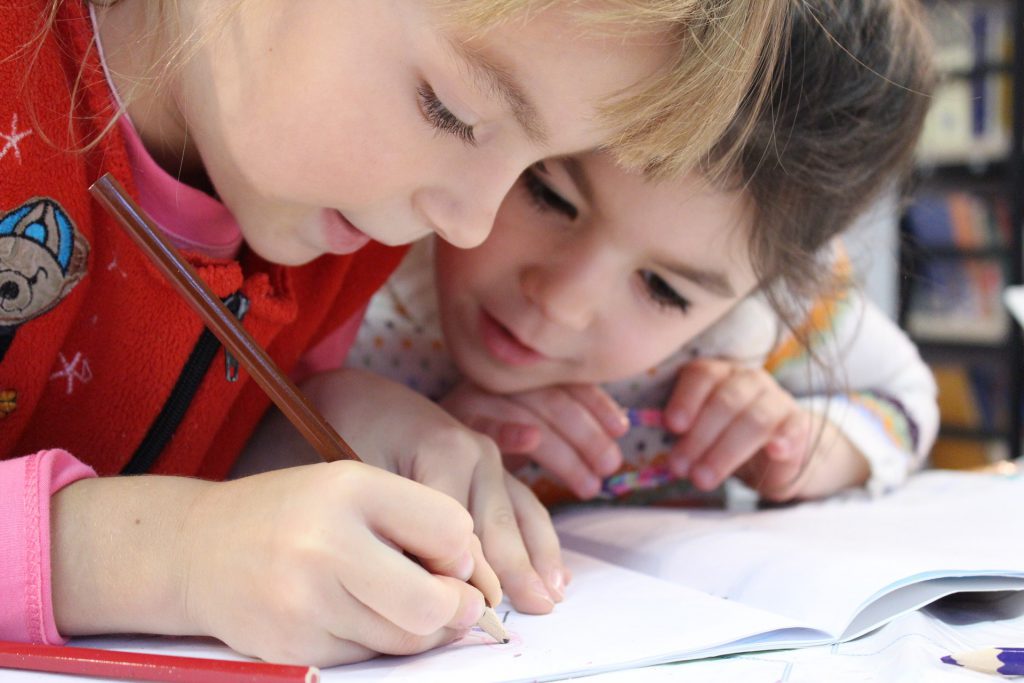STEM and STEAM Education

STEM is the abbreviation for science, technology, engineering and math. On the other hand, STEAM represents STEM plus the arts. In education, there is a great need for these topics. Both are an educational curriculum and have the aim to teach those subjects collectively instead of reaching each subject separately. Common STEM or STEAM projects […]
Robot programming

A robot is a machine, which executes one or more tasks automatically with speed and precision and is programmable by a computer. It can be controlled by a human operator, even from a great distance. To ensure a precise exercise, the robot needs to be programmed. In this course, students will learn: Robots for beginners […]
Problem solving skills training

In business, problem solving skills play a very important role. Different strategies and tips can improve the ability to see, analyze and solve problems. Our problem solving training introduces effective methods to improve efficacy, performance and productivity. The participants will learn how to solve problems quickly and optimize their decision-making process.
Pre-school education

This type of education is focused on educating children from the ages of infancy until six years old. Different pre-school approaches, theories and practices are available. They include programs like nursery school, daycare and kindergarten which are responsible for providing education before the commencement of statutory education. Different aspects of pre-school education possibilities will be […]
Peer teaching

Peer teaching method is a concept in which a student instructs another student in learning material, meaning the first student is an expert and the second one is a novice. This concepts is not a new method and it can be traced back to Aristotle´s archons. This concepts brings many benefits, including more time for […]
Multiculturalism

Multiculturalism describes the way in which a society deals with cultural diversity. It underlies the assumption that members of different cultures can coexist peacefully, despite their different religious, cultural or racial identity. Multiculturalism expresses the thinking that society is enriched by preserving, respecting and encouraging cultural diversity. Students will learn different aspects of multiculturalism: Multiculturalism […]
International quality standards in education

Education is one of the most important factors in reducing levels of poverty, improving quality of life and enabling innovation and progress. Creating a set of international quality standards has been described as challenging, but promising. A single set of standards in education needs to be viewed in the context of world-wide cultures and other […]
Industry 4.0 applications

Industry 4.0 is the fourth industrial revolution taking place with the adoption of computers and automation. The production is enhanced with smart and autonomous systems by machine learning. The aim is to connect computers to each other and to enable the communication without human involvement. Because of the support of smart machines, our factories will […]
Inclusive education

Inclusive education means that all students are placed in age-appropriate general education classes in their own neighborhood to receive high-quality instruction and support in pursuing success in the core curriculum. Students with disabilities are as fundamentally competent as students without disabilities and they, therefore, need to be included in the local school community. Successful inclusive […]
Foreign language teaching

There are a number of theories regarding foreign language teaching. Methodologies and practices have been evolving for decades with new discoveries in behaviorist theories, cognitive psychology, constructivism, social constructivism, experiential learning, multiple intelligence, situated learning theory and community of practice. In this course, different topics will be discussed: Fluency in the target language Knowledge of […]